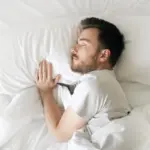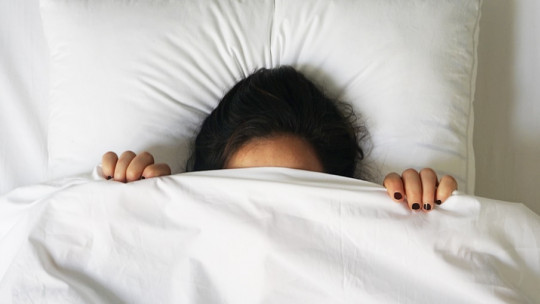Clinomania or clinophilia is the obsession or extreme need to stay in bed for many hours of the day without there being an organic disease that justifies it.
Clinomania, also known as clinophilia, is a fascinating phenomenon that sheds light on the intricate workings of the human psyche. This condition, characterized by an overwhelming desire to stay in bed, often manifests as a reluctance or inability to leave the comfort of one’s bed, even when faced with responsibilities or commitments. While it may seem like a simple preference for relaxation, clinomania can have profound implications for individuals’ daily lives and overall well-being.
Understanding Clinomania
Clinomania stems from a complex interplay of psychological, physiological, and environmental factors. At its core, it reflects a deep-seated need for comfort, security, and escape from the stresses and demands of everyday life. For some individuals, the act of staying in bed provides a sense of refuge from the pressures of work, relationships, or personal challenges, offering a temporary reprieve from the outside world.
How to know if you suffer from clinomania
The fact that we want to stay lying in our bed or are too lazy to get up does not automatically mean that we have a disorder like clinomania. It is relatively normal, especially in societies like ours with such a frenetic pace of life, that we are often tired and want to lie down for hours.
The problem comes when the desire to stay lying in bed becomes an obsession that ends up affecting our work, social or family life. It is at that time when one should worry and raise the need to visit a mental health professional.
Causes of Clinomania
Clinomania can have various underlying causes, ranging from psychological factors to environmental influences:
Psychological Factors
Psychological factors such as stress, anxiety, or depression can contribute to the development of clinomania. The desire to stay in bed may stem from a need for emotional comfort or a desire to avoid confronting difficult emotions or situations.
Sleep Disorders
Underlying sleep disorders, such as insomnia or hypersomnia, can also contribute to clinomania. Disrupted sleep patterns or difficulty falling asleep may lead individuals to seek refuge in bed during waking hours, exacerbating feelings of fatigue and lethargy.
Environmental Influences
Environmental factors, such as a comfortable bed or a cozy bedroom environment, can reinforce the desire to stay in bed. Individuals may associate their bed with feelings of safety, security, and relaxation, making it difficult to resist the temptation to stay put.
Signs and Symptoms
Identifying clinomania can be challenging, as it often overlaps with other mental health conditions such as depression, anxiety, or sleep disorders. However, there are several common signs and symptoms that may indicate a propensity towards clinomania:
Difficulty Getting Out of Bed
Individuals with clinomania may struggle to get out of bed, even after a full night’s sleep or when faced with important tasks or commitments. The allure of staying in bed can be so powerful that it overrides other responsibilities, leading to chronic lateness or absenteeism.
Excessive Sleeping
Clinomania may also be characterized by excessive sleeping or spending extended periods of time in bed, even beyond what is necessary for adequate rest. This behavior can disrupt daily routines, impair productivity, and interfere with social or professional obligations.
Emotional Distress
Underlying clinomania may be feelings of emotional distress, such as sadness, lethargy, or apathy towards life. Staying in bed may serve as a coping mechanism for dealing with negative emotions or avoiding difficult situations, providing a temporary escape from reality.
Social Withdrawal
Individuals with clinomania may withdraw from social activities or interpersonal relationships, preferring the solitude and comfort of their bed. This isolation can exacerbate feelings of loneliness, exacerbating the cycle of avoidance and withdrawal.
Psychological symptoms
In addition to paying attention to the signs, It is advisable to observe yourself and detect any type of unusual symptoms
These are some of the most common psychological symptoms when suffering from clinomania:
Treatment and Management
Like any other anxiety disorder, Clinomania usually requires psychotherapy to alleviate the symptoms, generally of a cognitive-behavioral type In more severe cases, pharmacological intervention, with anxiolytic or antidepressant medications, may be required.
The main objective of treatment is to ensure that patients suffering from clinomania can regain control of their lives; That is, they are able to work, relate to friends and family, etc. In short, to lead a structured and autonomous life.
Making lifestyle changes is essential for these people, as it helps reduce their obsession with staying in bed. Encouraging them to do physical exercise and other types of outdoor activities is a way to help them modify their behavior and minimize obsessive symptoms.
Addressing clinomania typically requires a multifaceted approach that addresses underlying psychological, physiological, and environmental factors:
Cognitive-Behavioral Therapy (CBT)
Cognitive-behavioral therapy (CBT) can help individuals identify and challenge maladaptive thoughts and behaviors associated with clinomania. By exploring underlying beliefs and coping strategies, individuals can develop healthier ways of managing stress and regulating their sleep-wake cycle.
Sleep Hygiene Practices
Implementing good sleep hygiene practices can help regulate sleep patterns and reduce the urge to stay in bed excessively. This includes establishing a regular sleep schedule, creating a comfortable sleep environment, and avoiding stimulants such as caffeine or electronic devices before bedtime.
Medication
In some cases, medication may be prescribed to manage underlying symptoms of depression, anxiety, or sleep disorders that contribute to clinomania. Antidepressants, anxiolytics, or sleep aids may be used in conjunction with therapy to alleviate symptoms and improve overall functioning.
Lifestyle Changes
Making lifestyle changes such as engaging in regular physical activity, practicing relaxation techniques, and maintaining a balanced diet can also support mental and physical well-being. These holistic approaches can help individuals manage stress, improve mood, and increase energy levels, reducing the reliance on staying in bed as a coping mechanism.
Associated disorders
Although clinomania is considered an anxiety disorder in itself, Its symptoms can appear in other mental illnesses such as depression or schizophrenia.
The tendency to remain in bed indefinitely often occupies the terminal period of some untreated depressed patients. Clinomania occurs as another maladaptive symptom, along with other characteristic symptoms of depression, such as irritability, persistent sadness, anhedonia (inability to experience pleasure) or frequent crying.
Another mental illness in which clinomania can appear as a symptom is schizophrenia. In a certain subtype of schizophrenia, catatonic, it is common for the patient to experience periods of immobility or catalepsy, with consequent body rigidity. This sometimes leads them to lie on the bed or couch for countless hours.
Clinomania and dysania: differences
We have already talked about clinomania, which involves an obsession and extreme need to continue lying in bed. But, Is there any other similar disorder?
Dysania is a psychological disorder that causes people who suffer from it to feel confused when they wake up showing signs of irritability and anger at having to get up.
This occurs because their bodies ask them to sleep more and extend the time they rest in bed, while being aware that the time has come to get up and get going.
This fact generates even greater frustration, which increases because, according to experts, this lack of rest is associated with a lack of motivation (due to work, family, personal reasons, etc.) that makes it even more difficult to get away from the sheets.
According to experts, dysania is a growing disorder due to the change in the sleeping patterns we have: we go to bed later and, generally, we do so after having been exposed to all types of digital screens such as smartphones and tablets, which makes it even more difficult to fall asleep.
Although dysania is not considered a disease in itself, as is the case with clinomania (which is treated as an anxiety disorder), it is important to solve this problem as soon as possible, so that it does not last over time: for For example, sleeping enough hours so that the body is rested when the alarm clock rings.
Clinomania, or clinophilia, is a complex phenomenon that reflects the interplay of psychological, physiological, and environmental factors. While the desire to stay in bed may provide temporary comfort or relief, it can have detrimental effects on individuals’ overall well-being and functioning. By understanding the signs, symptoms, and underlying causes of clinomania, individuals can seek appropriate treatment and support to reclaim control over their lives and improve their quality of life.









